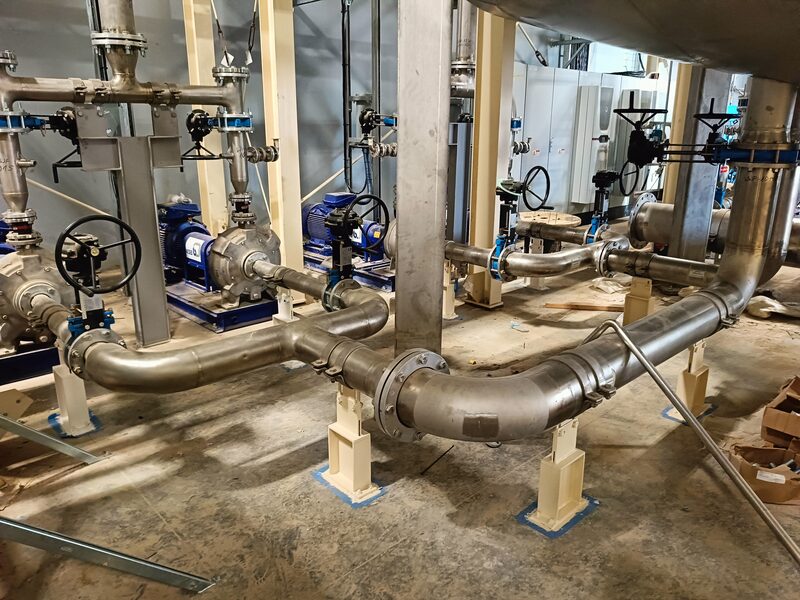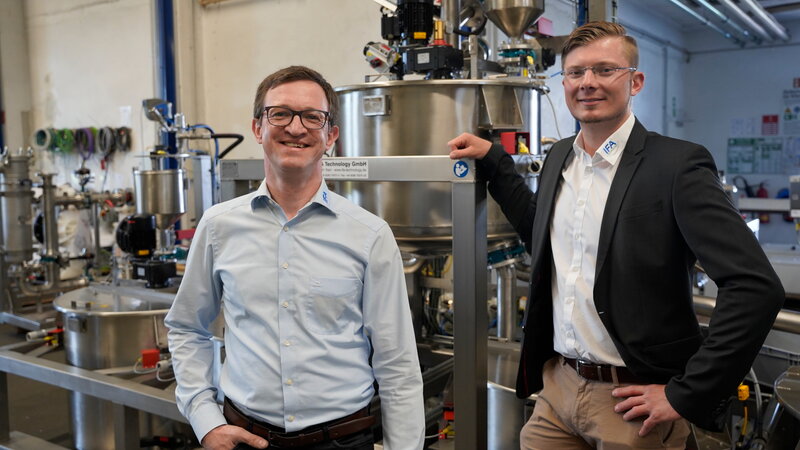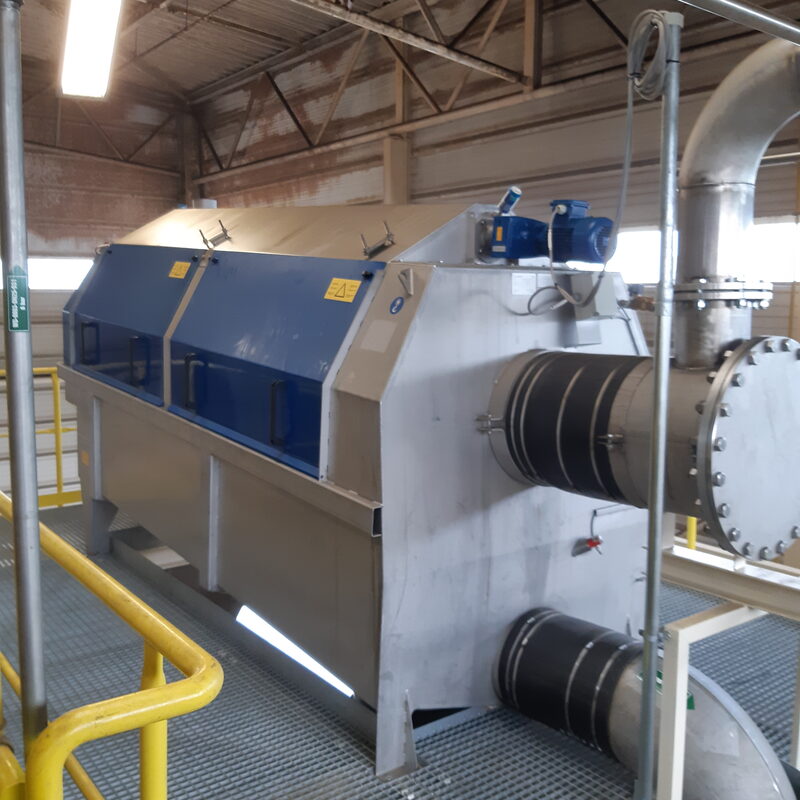Switch to a different language version here:
Wechseln Sie hier zu einer anderen Sprachversion:
Cambie aquí a otra versión lingüística:
Passez à une autre version linguistique ici:

In chemical treatment, water is purified by the targeted use of chemicals. This method is necessary for water contaminated with poorly soluble substances such as oils, greases, resins or acids. The aim is to bind, neutralize or remove these substances.
Chemicals efficiently remove contaminants that arise during the production process. Each system is specifically tailored to the respective production process to ensure maximum efficiency. The use of special chemicals protects against corrosion in pipes and machines. IFA Technology uses modern programmable logic controllers (PLC) to monitor and adjust the chemical treatment process.
Flocculation systems are frequently used for chemical treatment. These systems use special chemicals to bind unwanted substances in the water. This enables the treated water to be safely returned to the production process, optimizing water quality and supporting sustainable production.
Reverse osmosis systems use a physical-chemical separation process in which water is softened and purified of salts, minerals, and other substances by applying pressure. These systems ensure consistent quality in products that are mixed with water.

These systems help to ensure compliance with strict environmental regulations and to reduce operating costs. The reuse of treated water reduces the demand for fresh water and the amount of wastewater to be disposed of. This leads to significant savings in production and minimizes the company's ecological footprint. The efficiency and benefits of the systems depend heavily on the individual production conditions and the actual water consumption. The specific water consumption can be precisely determined by using the process water treatment system. This system optimizes the use of water resources.
Contact us to find out how our systems can optimize your production processes. We offer customized solutions for your specific requirements.
What is the difference between chemical and mechanical processing?
In chemical treatment, chemicals are used to neutralize or bind contaminants such as oils, greases or pollutants. In mechanical treatment, physical particles are removed by filtration, sedimentation or centrifugation. Users often combine both methods for optimal cleaning. One example is a flotation plant with a flocculation system. This enables effective pollutant separation using flocculation agents. Users often combine both methods for optimal cleaning. One example is a flotation plant with a flocculation system. This enables effective pollutant separation using flocculation agents.
How does industrial process water treatment reduce my operating costs?
Reusing treated water significantly reduces the consumption of fresh water. This saves on the costs of procuring fresh water and disposing of wastewater. In addition, the treatment increases the service life of the machine by reducing corrosion and deposits.
How to monitor industrial water treatment?
IFA Technology uses modern programmable logic controllers (PLC). These monitor all relevant process data in real time. The operating personnel can view the plant status via a central control room and intervene quickly if necessary.
Which industries benefit from process water filtration solutions?
Our solutions are suitable for industries such as the insulation industry, chemical industry, construction chemicals and building materials production. These industries produce specific types of wastewater that can be efficiently cleaned and reused.
